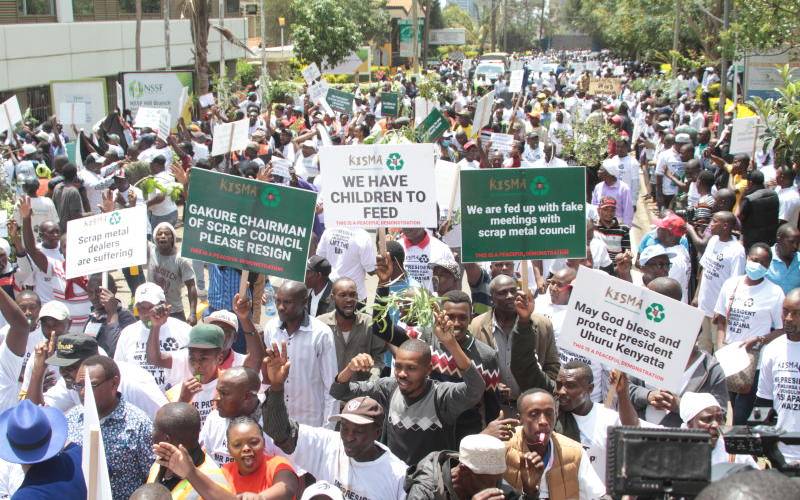×
The Standard e-Paper
Home To Bold Columnists

Scrap metal dealers are protesting the new requirements imposed on them by the government.
Despite the government’s move that saw the ban imposed on scrap metal early this year lifted, the doors of scrap metal dealers remain closed, especially Jua kali dealers who decry the hefty fee imposed on them.